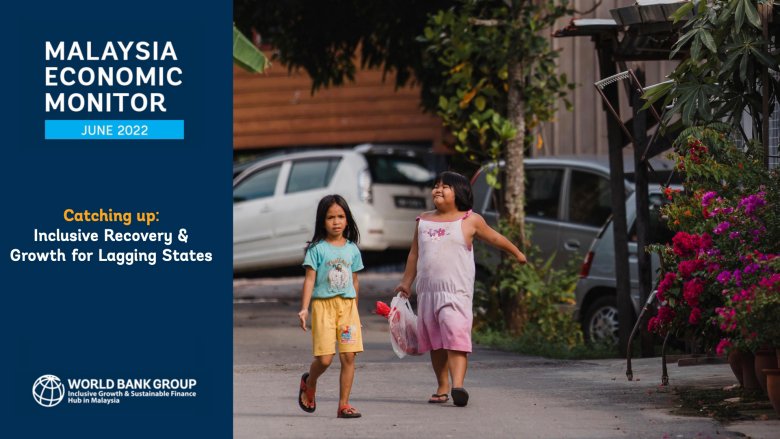KUALA LUMPUR, 14 June – The full withdrawal of movement restrictions and the reopening of the economy will reposition Malaysia on a quicker recovery path, according to a new World Bank report launched today. The economy is projected to expand 5.5 percent in 2022, driven mainly by a strong rebound in consumption. Fiscal consolidation to support inclusive recovery across the country should remain a key priority but needs to be implemented gradually.
“As recovery becomes more entrenched, policy needs to refocus on addressing the fiscal impact of the COVID-19 crisis through increased revenue collection and greater spending efficiency,” said Ndiame Diop, World Bank Country Director for Brunei, Malaysia, Philippines, and Thailand. “Beyond rebuilding fiscal buffers, new growth opportunities could be seized in the post-pandemic world. For example, Malaysia can step up efforts to address some of the main constraints facing the development of Malaysia’s services sector and reinvigorate private investment.”
The World Bank’s latest report, “Catching Up: Inclusive Recovery & Growth for Lagging States,” found that fiscal policies must strike a balance between increasing revenues, spending efficiently, and ensuring sufficient social protection for lower-income groups to encourage comprehensive growth.
“The recent rise in food and energy prices, following the conflict between Russia and Ukraine, have contributed to the price pressures and the rising cost of living. It is important then, for the government to continue its support to vulnerable segments of the population, which was the hardest hit group during the pandemic while addressing structural challenges pertaining to energy and food security” said Dato’ Sri Mustapa Mohamed, Minister in the Prime Minister’s Department (Economy).
In the short term, fiscal policy should be focused on maintaining financial support for the poor and vulnerable and establishing a more inclusive social protection framework with better targeting. The government’s various cash assistance programs throughout the pandemic have provided important support to households. However, the World Bank’s High-Frequency Phone Survey revealed these cash assistance programs did not reach nearly a quarter of those earning RM2,000 or less.
While higher fiscal spending in response to the pandemic has helped support the economy, it has also led to further narrowing of the fiscal space. Efforts to rebuild fiscal buffers through increased revenue collection and enhanced spending efficiency should remain a key policy priority. However, because the economic recovery is still in its early stage, medium-term fiscal consolidation has to be tackled gradually.
The report’s special topic highlights challenges constraining economic development in lagging states, namely Kedah, Perlis, Kelantan, Sabah, and Sarawak, characterized with the lowest average income/highest poverty rate. The report finds that some barriers to growth in these states could be addressed through deepening federal-state collaboration under an explicit policy framework for addressing specific challenges of lagging states.
With the right governmental support systems and prudent fiscal steps in place, Malaysia’s economy can expand beyond a return to pre-pandemic levels, towards achieving significant long-term development goals.

